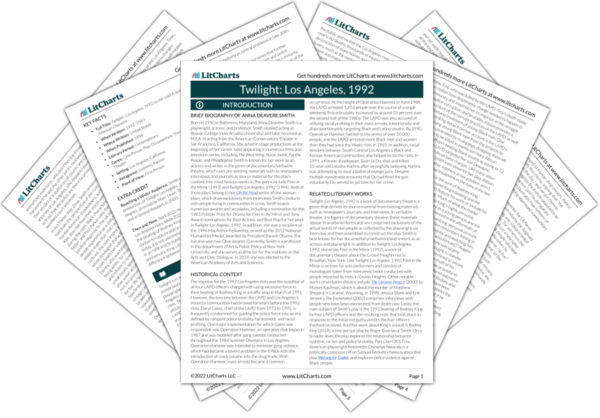AI ToolsNew
Tools to make learning and teaching easier
|
Previous
A Bloodstained Banner
|
Twilight: Los Angeles, 1992: Carmen Summary & Analysis |
Next
Where the Water Is
|


Upgrade to unlock the analysis and theme tracking for all of Twilight: Los Angeles, 1992Twilight: Los Angeles, 1992!
Get LitCharts A+